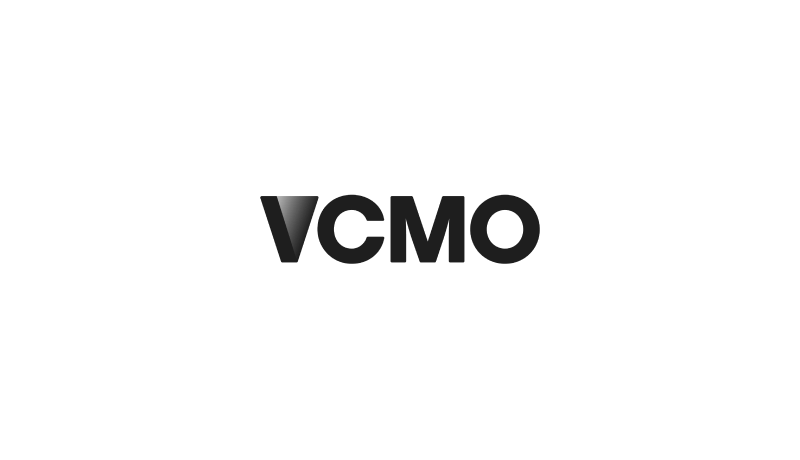Compare strategic accountability, execution ownership and commercial impact across consultant and fractional CMO models.
Introduction
In boardrooms and budget meetings alike, the titles "Fractional CMO" and "Marketing Consultant" are often used interchangeably — a semantic oversight that can quietly undermine strategic momentum. While both roles bring external marketing expertise into a business, their approach, scope, and impact are fundamentally different. One delivers leadership; the other delivers advice. One embeds within your senior team; the other operates at the perimeter.
Yet, confusion persists. In scaling businesses or investor-backed ventures, choosing the wrong model can lead to unmet expectations, fragmented execution, and wasted investment. CEOs seeking transformation may hire a consultant when they really need embedded leadership. Equally, founders needing tactical help may over-invest in a strategic CMO engagement that’s premature.
This article draws a clear line between the two roles — not to elevate one over the other, but to help leadership teams make informed, commercially intelligent decisions based on context, complexity, and company maturity.
Roles & Responsibilities: What Do They Actually Do?
At a glance, both a Fractional CMO and a marketing consultant appear to offer the same value: external marketing expertise without the cost of a full-time executive. But the difference lies not just in what they do — it’s in how they engage, what they’re accountable for, and the level of integration they bring to your business.
A marketing consultant typically enters the business with a defined brief. Their role is diagnostic and advisory — to assess a challenge, provide recommendations, and sometimes support delivery through a scoped project or campaign. Consultants are not embedded within the leadership team, nor are they expected to drive cross-functional alignment. They offer insights and frameworks, but the onus of execution and leadership falls back to the internal team.
A Fractional CMO, by contrast, is a senior executive embedded within the business — albeit on a part-time basis. They take strategic ownership of the marketing function, provide leadership to in-house and outsourced teams, and report directly to the CEO or board. Their remit spans strategy, execution, team capability, budget alignment, and commercial KPIs. Crucially, a Fractional CMO doesn’t just advise — they lead.
This difference in operational depth, accountability, and decision-making influence is often misunderstood, yet it determines the success or failure of the engagement. The table below outlines these distinctions at a glance.
"The biggest misunderstanding is assuming that both roles deliver the same outcome. Consultants advise — they provide insight and frameworks. Fractional CMOs, on the other hand, deliver. They build the roadmap, lead the team, and are accountable for the outcome, not just the idea."
Fractional CMO vs Marketing Consultant — A Side-by-Side Comparison
If you're still clarifying how each role contributes to business growth, you may find our breakdown of What Does a Fractional CMO Do? helpful — it outlines the specific areas of ownership and impact.
Engagement Model: Scope, Duration and Relationship
The nature of the engagement is one of the clearest differentiators between a Fractional CMO and a marketing consultant — not just in contract terms, but in the rhythm of collaboration and the depth of relationship forged with the business.
A marketing consultant is usually engaged to solve a discrete problem or deliver a defined project. They might conduct a market audit, create a messaging framework, or support a product launch. Engagements are scoped tightly, timelines are finite, and the relationship is more transactional. While a good consultant will tailor their solution, their role typically ends once the deliverable is complete. They rarely stay long enough to see their recommendations implemented — let alone optimised or course-corrected.
A Fractional CMO, on the other hand, operates as a long-term partner. While they may initially be brought in to solve a specific challenge — poor lead flow, team underperformance, lack of strategic direction — their remit quickly evolves into broader leadership. This includes aligning marketing with commercial goals, building capability, overseeing performance, and maintaining momentum across functions. They engage over months or years, not weeks, and often sit at the table with senior leaders, board members, and investors.
This continuity and context are essential. Marketing does not live in a vacuum — it thrives in sync with product, revenue, finance and operations. A Fractional CMO brings the consistency to knit these threads together, whereas a consultant, by design, touches only one part of the tapestry.
For more on how different working models affect results and team integration, see Is a Fractional CMO the Same as an Interim CMO? — a common comparison with equally important differences.
"A consultant drops in and out. A Fractional CMO stays in the seat. It’s not about time on the clock — it’s about continuity, context, and leadership presence. That’s what creates the difference in traction and long-term impact."
Strategic Focus & Accountability
Perhaps the most defining difference between a Fractional CMO and a marketing consultant lies in where they operate on the strategic-to-tactical spectrum — and how accountable they are for outcomes.
A marketing consultant typically provides insights, ideas and frameworks. Their value lies in subject-matter expertise and independent analysis. They might identify gaps in your positioning, assess campaign performance, or recommend improvements to your digital funnel. But execution — and results — rest with the internal team. Consultants rarely hold formal accountability for revenue impact, customer acquisition or retention. Their deliverables end at the recommendation stage, often leaving businesses to translate strategy into action on their own.
In contrast, a Fractional CMO owns the strategy and the results. They’re expected to define the direction, align marketing with commercial objectives, and lead execution through internal teams or external partners. They set KPIs, track performance, and course-correct when needed. Their success is measured not just by the quality of their thinking, but by the growth outcomes they deliver — be it improved customer acquisition cost (CAC), lifetime value (LTV), conversion rates, or team capability uplift.
This embedded accountability changes how strategy is built. It becomes iterative, data-led, and outcome-driven — not static or theoretical. Where consultants advise from the side-lines, Fractional CMOs are in the arena, sleeves rolled up, responsible for delivering growth under real-world conditions.
Decision-Making Authority & Internal Influence
Leadership in marketing doesn’t just require vision — it demands authority. The extent to which a professional can influence internal decisions, rally teams, and steer investment is a major point of difference between a Fractional CMO and a marketing consultant.
A marketing consultant provides guidance, but does not typically have decision-making rights. Their role is advisory. They may recommend a brand refresh, advocate for a new martech platform, or suggest changes to the lead generation process, but whether those ideas are implemented — and how — is left to the internal team. Their influence is often dependent on the sponsor’s buy-in and organisational willingness to change.
By contrast, a Fractional CMO is an integral part of the leadership team. They hold strategic and operational decision-making authority within the marketing function. They set priorities, own the marketing budget, hire or restructure teams, and often shape cross-departmental decisions — especially in areas like pricing, sales enablement, and customer experience. They engage directly with the CEO, CFO, and Head of Sales, bringing marketing into commercial discussions that influence the direction of the business.
This level of influence is critical in fast-scaling environments, M&A scenarios, or where marketing needs to be repositioned as a strategic growth driver. While consultants influence change from the outside, Fractional CMOs lead it from within.
To understand the strategic weight a Fractional CMO carries across your leadership team, our article on Top Reasons for Businesses to Hire a Fractional CMO explores the value beyond marketing delivery.
"Consultants influence decisions. Fractional CMOs make them. They carry executive weight, participate in leadership meetings, and shape company strategy. That level of ownership is what drives integrated, cross-functional marketing that actually moves the business forward."
Triggers for Choosing One Over the Other
Choosing between a Fractional CMO and a marketing consultant isn’t about one being better than the other — it’s about fit. The right model depends on your organisation’s maturity, complexity, pace of change, and leadership bandwidth. The table below outlines typical scenarios and strategic triggers that can help guide the decision.
Not sure which model fits your current business stage? Our article Fractional CMO vs Full-Time CMO walks through key decision points to help you assess fit, cost, and commitment.
When Fractional CMOs Operate in Consultant Mode
While the distinction between a marketing consultant and a Fractional CMO is useful, the reality on the ground is often more fluid. Many experienced Fractional CMOs — particularly those with a wide portfolio of engagements — also provide advisory services that mirror the consulting model. This may include one-off strategic workshops, brand audits, investment readiness reviews, or market entry assessments.
In these scenarios, the Fractional CMO steps out of the embedded leadership role and adopts a more light-touch, consultative approach. This allows businesses to tap into deep strategic expertise without committing to longer-term engagement. For founders navigating inflection points or businesses exploring early-stage market fit, this hybrid model can be especially valuable.
The key takeaway is adaptability. A seasoned Fractional CMO will flex their style to match your needs — whether that’s acting as an extension of your leadership team, or as a sharp external lens for a defined challenge.
Summary: Clarity Leads to Better Decisions
The confusion between Fractional CMOs and marketing consultants is understandable — both bring external expertise, strategic insight, and fresh energy to a business. But as we've explored, the nature, depth, and impact of their roles are markedly different.
A marketing consultant offers advice, analysis, and project-based solutions. They are valuable when you need sharp thinking applied to a specific question, campaign, or challenge. They work around the business, not within it.
A Fractional CMO, by contrast, provides ongoing leadership, owns outcomes, and embeds into your senior team. They are ideal when marketing requires transformation, when leadership bandwidth is thin, or when your growth ambition needs structure, pace, and cohesion.
The strongest businesses don't just ask who can help — they ask what kind of help do we need. Making the right choice starts with understanding the difference.
Get in touch: If this article reflects what you’re experiencing, get in touch to explore whether fractional marketing leadership is the right fit for your business.
About VCMO
VCMO is a UK-based provider of fractional marketing services, supporting B2B SMEs—ranging from funded scale-ups to mid-tier and private equity-backed businesses—through key moments of growth and transformation. Its Chartered Fractional CMOs and SOSTAC® certified planners embed strategic marketing leadership into organisations navigating product launches, new market entry, acquisitions, and leadership gaps.
What’s a Rich Text element?
The rich text element allows you to create and format headings, paragraphs, blockquotes, images, and video all in one place instead of having to add and format them individually. Just double-click and easily create content.
- By following these tips, you can make sure you’re noticed on LinkedIn and start building the professional connections you need to further your career.
-

Static and dynamic content editing
A rich text element can be used with static or dynamic content. For static content, just drop it into any page and begin editing. For dynamic content, add a rich text field to any collection and then connect a rich text element to that field in the settings panel. Voila!
How to customize formatting for each rich text
Headings, paragraphs, blockquotes, figures, images, and figure captions can all be styled after a class is added to the rich text element using the "When inside of" nested selector system.


Ready to take your marketing to the next level? Let us help you get there.
Subscribe to Our Newsletter
Fractional Edge is our montly newsletter sharing expert opinion on the latest trends in fractional leadership, curated marketing content from leading sources, VCMO events, and much more. Subscribing is quick — just add your name and email.












.jpg)




